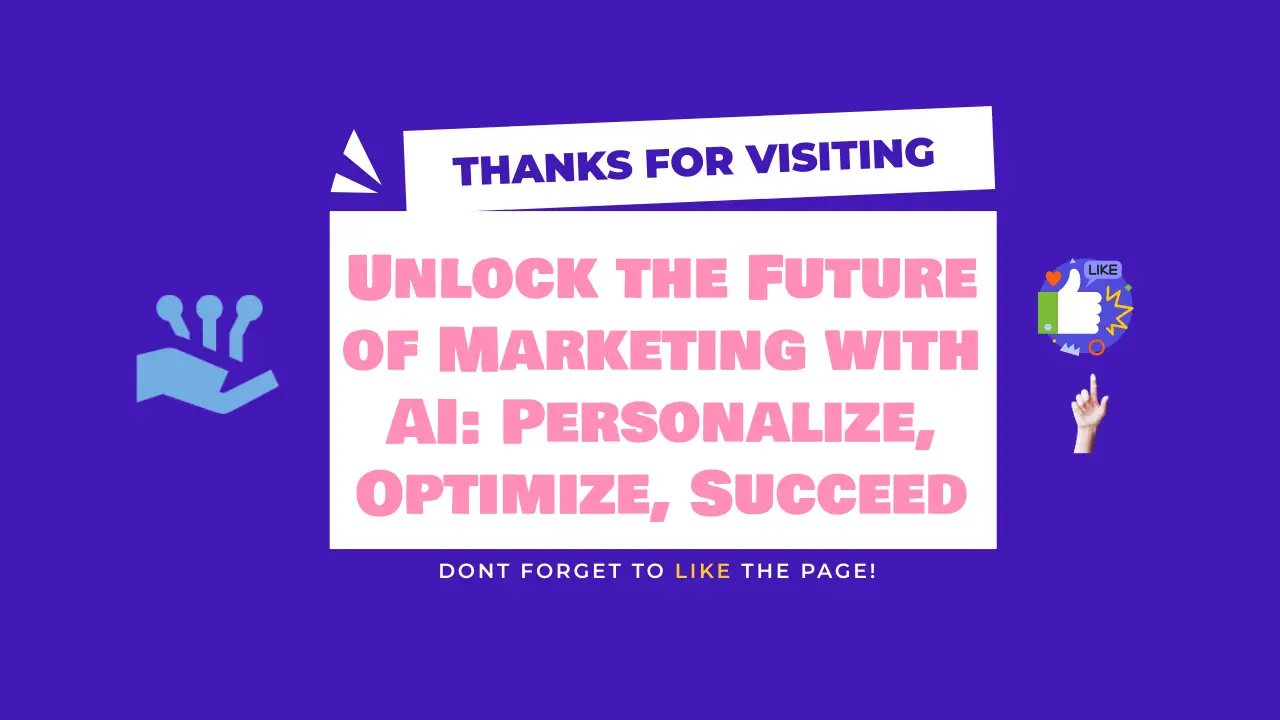How AI is Revolutionizing Online Marketing: The Future is Now

In today’s fast-paced digital world, artificial intelligence (AI) is transforming nearly every aspect of online marketing. With the increasing volume of data, the need for more personalized customer experiences, and the demand for smarter decision-making, AI has become an essential tool for businesses looking to stay ahead of the competition. This article explores how AI is revolutionizing online marketing and why it’s an exciting time for both marketers and consumers.
1. AI-Powered Personalization
One of the most significant ways AI is transforming online marketing is through personalization. Consumers now expect experiences that are tailored to their specific needs and preferences. AI enables marketers to analyze vast amounts of consumer data, such as browsing history, purchase behavior, and social media activity, to create hyper-targeted content and product recommendations.
For example, e-commerce platforms like Amazon and Netflix use AI algorithms to recommend products or movies based on users’ previous interactions. This level of personalization not only improves the customer experience but also increases conversion rates and customer loyalty.
2. Enhanced Customer Service with Chatbots
AI-powered chatbots are another breakthrough in online marketing. These chatbots can engage with customers 24/7, providing instant responses to inquiries and resolving issues in real-time. Unlike traditional customer service models, which require human agents to be available, AI chatbots can handle multiple customers simultaneously, improving efficiency and reducing operational costs.
Additionally, chatbots can learn from each interaction, becoming more effective over time. By collecting and analyzing data from conversations, they can offer increasingly relevant responses, further enhancing customer satisfaction and engagement.
3. Data-Driven Insights for Better Decision Making
AI allows marketers to leverage vast amounts of data to gain insights that would be impossible for humans to uncover manually. AI tools can analyze customer behavior patterns, identify trends, and predict future outcomes with a high degree of accuracy.
This data-driven approach enables marketers to make informed decisions about everything from content creation to campaign optimization. For example, AI can help determine the best times to send marketing emails, predict which products will perform well, or optimize advertising budgets by targeting the most profitable audiences.
4. AI and Content Creation
Creating high-quality, engaging content is a cornerstone of online marketing. AI is now assisting marketers in generating content more efficiently and effectively. Tools powered by natural language processing (NLP) can create blog posts, social media updates, and even video scripts that resonate with audiences.
AI can also help optimize existing content by suggesting improvements, such as SEO enhancements, keyword integration, and content structure adjustments. This ability to automate content creation while maintaining high quality helps marketers scale their efforts and reach larger audiences with less effort.
5. Predictive Analytics and Customer Segmentation
AI’s predictive capabilities are reshaping how marketers segment their audiences and design campaigns. By analyzing historical data, AI algorithms can predict which customers are most likely to convert, which products they may be interested in, and what type of messaging will resonate with them.
This allows businesses to create more targeted campaigns and optimize their marketing efforts for maximum return on investment (ROI). Additionally, AI can help in identifying emerging trends, enabling marketers to stay ahead of the curve and adjust strategies accordingly.
6. AI-Driven Advertising Optimization
AI is also revolutionizing digital advertising. With the rise of programmatic advertising, AI is used to automatically buy and place ads in real-time based on data-driven insights. This allows businesses to reach their target audience more effectively while minimizing ad spend.
AI algorithms continuously optimize ad placements, adjusting bids and targeting criteria to ensure that ads are shown to the right people at the right time. This dynamic approach to advertising helps improve the relevance of ads and ultimately leads to higher engagement and conversions.
7. Voice Search and AI in SEO
With the growing popularity of voice-activated devices like Amazon Alexa, Google Assistant, and Apple Siri, AI is having a profound impact on search engine optimization (SEO). Voice search relies heavily on natural language processing (NLP), which allows AI to understand and respond to spoken queries more accurately.
Marketers now need to optimize their content not just for traditional text-based search queries, but also for voice-based interactions. AI tools can help identify long-tail keywords and conversational phrases that are more commonly used in voice searches, ensuring that businesses remain visible in this evolving search landscape.
8. AI and Email Marketing
AI has brought significant advancements to email marketing as well. With the ability to segment email lists based on user behavior and preferences, AI can help marketers send more targeted and relevant email campaigns. AI-powered tools can determine the best time to send emails, personalize subject lines, and optimize email content for better engagement.
Moreover, AI can analyze the performance of email campaigns in real time and suggest improvements. Whether it's A/B testing subject lines or predicting which content will generate the most opens and clicks, AI ensures that email marketing is more efficient and effective than ever before.
Conclusion: The Future is Now
AI’s role in online marketing is growing exponentially, and its potential is far from fully realized. From personalized customer experiences to advanced advertising optimization and predictive analytics, AI is reshaping the way businesses connect with consumers. As technology continues to evolve, marketers who embrace AI will have a significant advantage in creating more engaging, relevant, and data-driven marketing strategies.
The future of online marketing is not just approaching; it is here now. Businesses that adopt AI-driven solutions today will be better equipped to thrive in an increasingly competitive and technology-driven world.